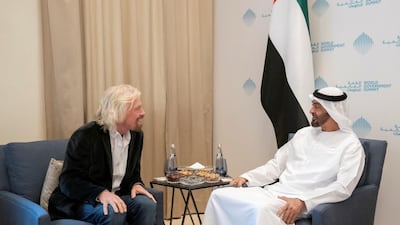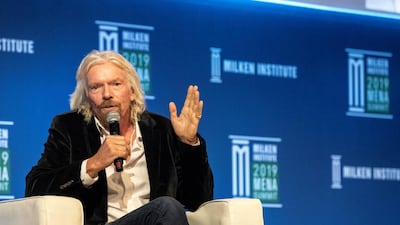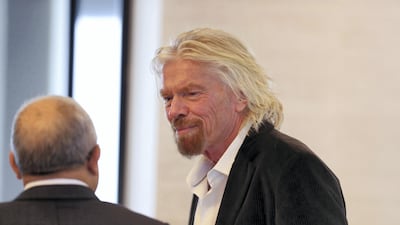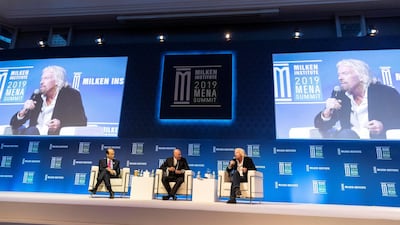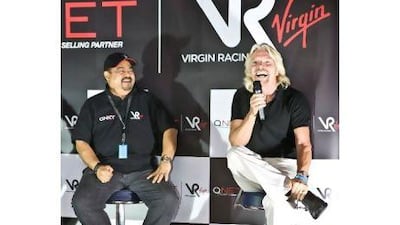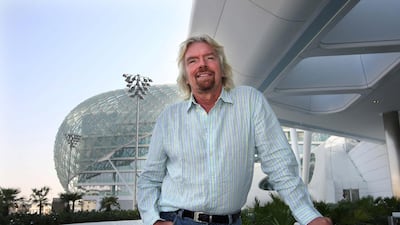Sir Richard Branson called for the greater distribution of global wealth through investment in high-quality entrepreneurs at a time when trust in capitalism is at an all-time low.
Speaking during the Milken Institute's Mena Summit in Abu Dhabi on Tuesday, the British businessman urged that more people benefit from free markets.
“We have to try and do everything we can to lift the vast majority of people up, when for the last few years the vast majority have not seen their living standards improve,” Sir Richard said.
Interest in socialism has risen in the past decade since the global financial crisis. This is more pronounced among young people, who are distrustful of capitalism as they bear the brunt of previous financial systems that have left them struggling to find job security and accumulate wealth.
Sir Richard said socialism was not the answer, but that governments and businesses should work hard to make free-market systems benefit more people.
“If you had to point to one country where socialism has worked, I don’t think you can find one,” he said.
“Take Venezuela – it [socialism] has resulted in a bankrupt country or worse. And in the UK, when governments ran everything, it really didn’t work that well.
“So I don’t think we should throw out capitalism. But for those of us who are fortunate to have made wealth, we have a responsibility to throw that out there and tackle some of the great problems. If we don’t do that, then we deserve to have very heavy taxes levelled on us.”
Sir Richard cited the UAE as an example of a free-market state that has achieved growth and success through investing in strong financial systems, high-growth businesses and quality entrepreneurs and start-ups.
“The reason Dubai and Abu Dhabi are doing so well is because they have many entrepreneurs that are making a mark, creating something that they can be proud of – and the bi-product of that is that wealth comes your way,” Sir Richard said.
The billionaire founder of the Virgin Group, with interests spanning the aviation, retail and space industries, also told the Milken Summit that climate change is one of the biggest threats facing the planet. He urged governments to introduce a ‘carbon tax’ on energy-guzzling companies, with the proceeds redirected to those promoting and utilising clean energy.
“We need to start creating a differential between clean fuel and dirty fuel – then we’ll start seeing the clean fuel companies doing better than the others,” he said.
_____________
Milken Institute Mena Summit 2019 in Abu Dhabi - as it happened
_____________
The UK’s impending departure from the European Union, or Brexit, is “the worst thing that’s happened to Britain, and Europe, since the Second World War”, Sir Richard added, saying that it is dragging down the UK’s economic growth and exposing the pound sterling to high volatility.
“If, God forbid, we get a hard Brexit, the pound will drop to parity with the dollar. I hope sense will prevail and the UK government holds a second referendum.
"We must do all we can to prevent Europe breaking up,” he said.
